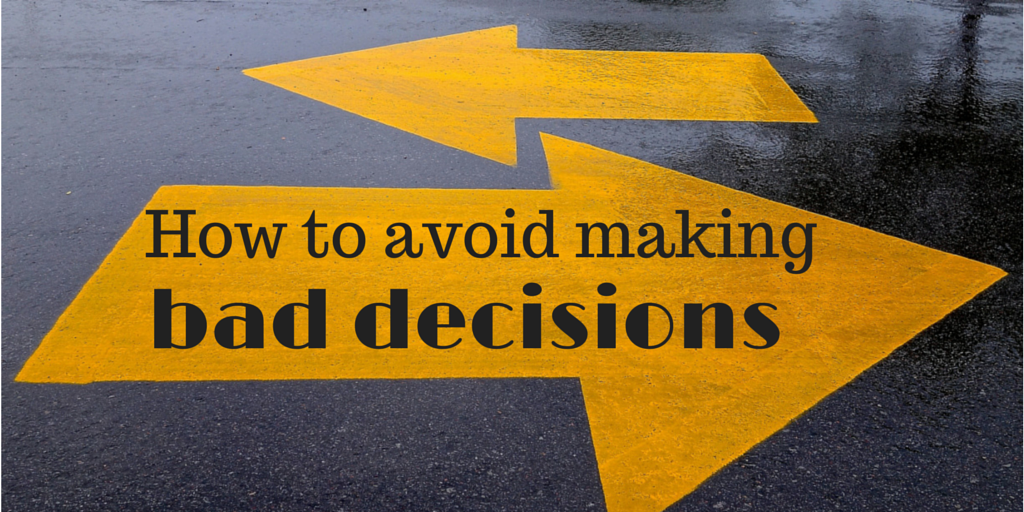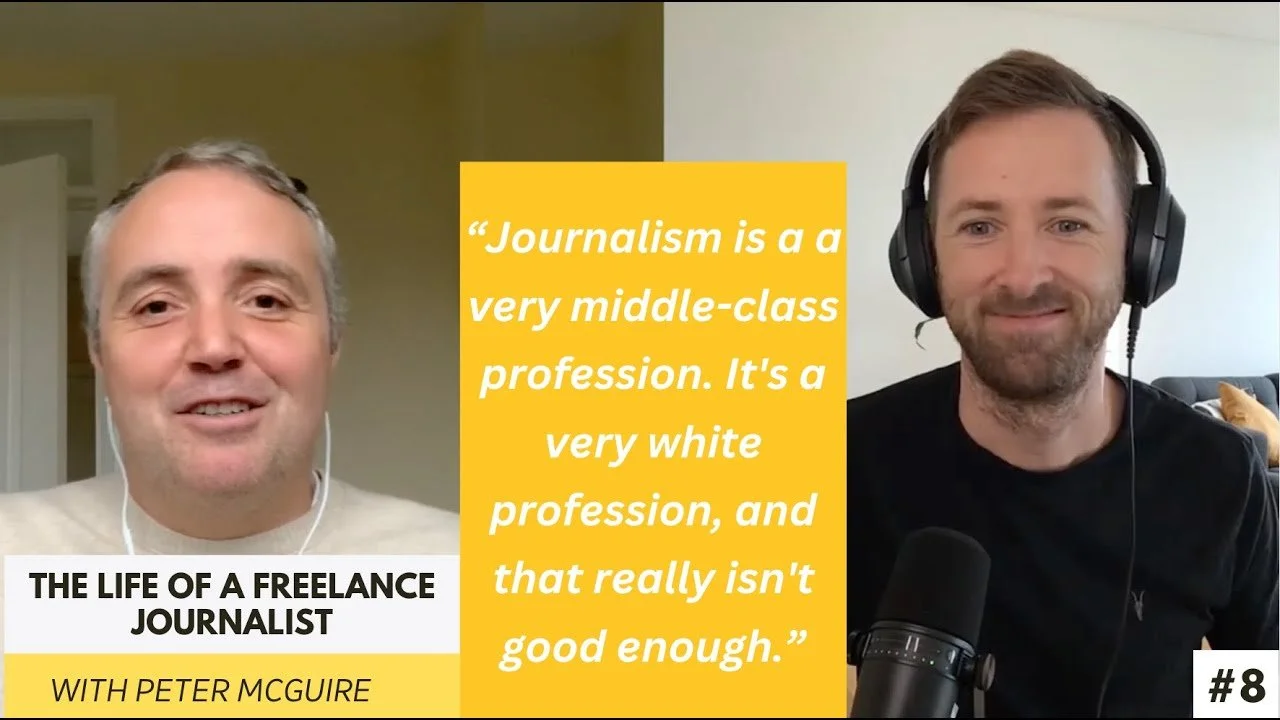How to avoid making bad decisions
Photo Credit: Dean Hochman
There are plenty of blogs and articles on decision-making that give you some simple steps to make better choices. Rather than repeat those points, I've decided to write about this topic from a research based point of view.
In 2011, Nobel Prize Winner Daniel Kahneman released his book "Thinking Fast and Slow" which summarises research that he conducted over decades, often in collaboration with his colleague Amos Tversky. The book was an absolute game-changer as far as I am concerned. Kahneman successfully outlined and defined many common errors which we all make from time to time. Being able to successful identify and avoid these errors will help us we make better choices in our personal and professional lives. That is the aim of this blog post.
Here are the key errors which are explained in a lot more detail in the book and all quotes (and examples) are from the book itself. I highly recommend reading it if you haven't already.
Fatigue
This is self-explanatory. When we are tired, we often avoid making decisions that are going to put us under more cognitive strain. In other words, sometimes we're too tired to think clearly about difficult choices.
'His ego was depleted after a long day of meetings. So he just turned to standard operating procedures instead of thinking through the problem.'
- Daniel Kahneman, 'Thinking Fast and Slow'
Availability Heuristic
This is the tendency that we have to search for and focus on information that agrees with our current beliefs. However, it would be more accurate to look for what disconfirms what we already believe.
'Searching for information that is available that confirms what you thought. You would be more beneficial if you tried to disprove or disconfirm your theory.'
- Daniel Kahneman, 'Thinking Fast and Slow'
Sunk Cost Fallacy
Sometimes when a project or a programme that we have implemented isn't going well... we continue with it even when there's no sign of it improving. Rather than concede defeat, we continue to work at it and lose even more. However, we would be better off admitting failure and saving future time, energy and money.
'"We are making an additional investment because we do not want to admit failure." This is an instance of the sunk-cost fallacy'
- Daniel Kahneman, 'Thinking Fast and Slow'
Cognitive Ease
This point refers to our inclination to make choices that are easier, as opposed to analysing the issue thoroughly - which requires a lot of effort.
'Let's not dismiss their business plan just because the font makes it hard to read.'
- Daniel Kahneman, 'Thinking Fast and Slow'
What You See Is All There Is
It's good to have evidence of what you're doing, but it's also important to consider that there may be something that you have missed. That's what this is point is about. What you see is often not all there is.
'I know this report is absolutely damming and it may be based on solid evidence, but how sure are we? We must allow for that uncertainty in our thinking.'
- Daniel Kahneman, 'Thinking Fast and Slow'
The Halo Effect
I know that I have definitely fell for this one before. Many of us make assumptions of something or someone based on what has already happened, but just because it occurs in one area, that doesn't mean it will transfer to another area.
'The tendency for an impression created in one area to influence opinion in another area. "She knows nothing about this person's management skills. All she is going by is the halo effect from a good presentation."'
- Daniel Kahneman, 'Thinking Fast and Slow'
Experts versus Predictability
Kahneman wrote this point while referring to the financial services industry. The was particularly relevant considering the crash in 2008 - many people made investments because they felt that the prices of stocks and shares were more predictable than they were in reality.
'The question is not whether these experts are well trained. It is whether their world is predictable.'
- Daniel Kahneman, 'Thinking Fast and Slow'
Substitution
This is what happens at interviews on occasion. It can be extremely difficult for an interviewer to find all the answers to all the questions that they have. Consider that they need to think whether or not a candidate has the right experience, qualifications, skills, abilities, attitude, work-ethic and if they will be able to integrate themselves well into the company/work environment. So sometimes they don't think about all of those things, sometimes they just substitute.
'The question we face is whether this candidate can succeed. The question we seem to answer is whether she interviews well. Let's not substitute.'
- Daniel Kahneman, 'Thinking Fast and Slow'
Weak Evidence
We all do this from time to time. We make choices based on weak evidence or no evidence. I agree that sometimes it may be good to go with your gut feeling, but other times, particularly in business, it's best to go with the numbers and the evidence. They tell a clearer story than your feelings do.
'They keep making the same mistake: predicting rare events from weak evidence. When the evidences is weak, one should stick to base rates.'
- Daniel Kahneman, 'Thinking Fast and Slow'
The Law of Small Numbers
Having evidence is good - but having sufficient data to give you accurate evidence is paramount.
"The sample of observation is too small to make any inferences. Let’s not follow the law of small numbers."
- Daniel Kahneman, 'Thinking Fast and Slow'
Representativeness
This is another point that we could relate back to interviews and interview preparation. It's interesting that Kahneman found enough evidence in his studies to make the point that how things look will often directly influence our impression of them. We should be aware of this while making important decisions.
“The lawn in well trimmed, the receptionist looks competent and the furniture is attractive, but this doesn’t mean it’s a well managed company."
- Daniel Kahneman, 'Thinking Fast and Slow'
These are some really useful points to remember when making any big decisions in your personal or professional life. If you've any questions about them, please ask them in the comments section rather than emailing me - it just means I don't have to respond to the same questions in different emails.
Finally, I hope you found this blog post interesting and thanks for reading.
Ronan
References:
Kahneman, D. (2011) Thinking, Fast and Slow. New York: Farrar, Straus and Giroux.










